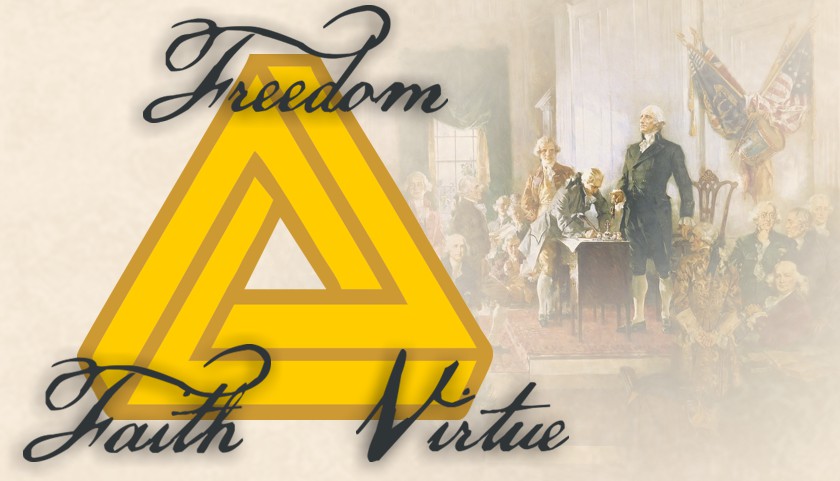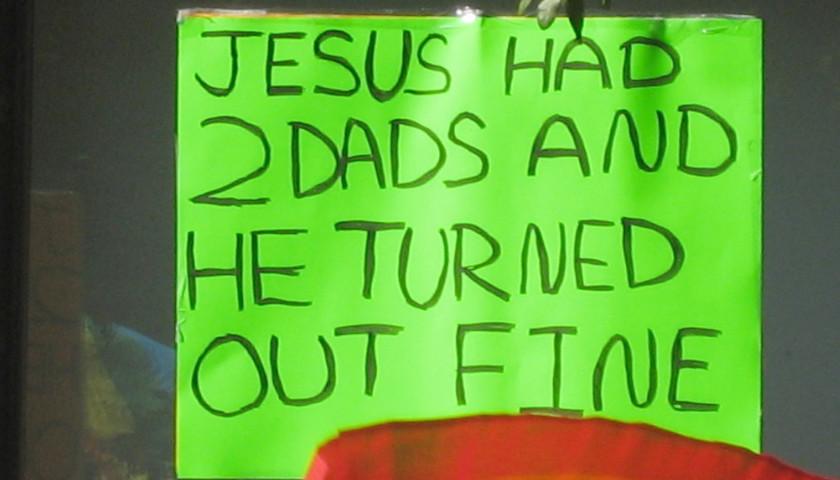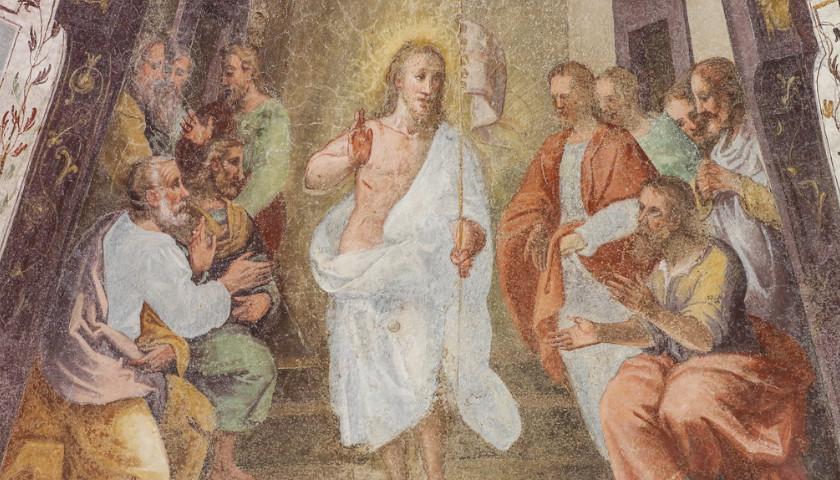This is the eleventh of twenty-five weekly articles in The Tennessee Star’s Constitution Series. Students in grades 8 through 12 can sign up here to participate in The Tennessee Star’s Constitution Bee, which will be held on September 23.
A remarkable aspect of the Constitution of the United States is that since its ratification in 1789 the American people have, for the most part, viewed it as a covenant agreement between themselves and the national government.
It is a powerful document not simply because of the words it contains, but because the people have freely chosen to be governed by those words.
Words written a parchment or typed into an I-phone have no impact unless they are accepted within a common belief system.
This why “the rule of law,” particularly as it has developed here in the United States, is so central to the development and growth of a vibrant and dynamic society where individual freedom flourishes.
In America, we call this freedom “constitutional liberty.”
But, as Ronald Reagan famously said, “freedom is never more than one generation away from extinction.”
The Founders knew this, and recently a Chinese-born English scholar who resides in America expressed in very simple terms how freedom is gained, why it relies on the virtue of the population, how that virtue is a natural extension of faith, and how faith requires freedom, or “constitutional liberty” to thrive and prosper.
His name is Os Guinness, and he is the great-great-great grandson of the famous Irish brewer, Arthur Guinness.
Guinness introduced the simple term “The Golden Triangle of Freedom,” which captures this fundamental concept, in his 2012 book A Free Peoples’s Suicide: Sustainable Freedom and the American Future.
Guinness explains the idea in this video clip:
“We think of the Framers as revolutionary, and they were. But they were also rooted, in the sense they tried to use history to defy history. Because they knew if you looked at the classics you have umpteen reasons of why freedom never lasts,” Guinness says.
“So, they wanted to create a political equivalent of a perpetual motion machine. A free republic that could stay free for ever,” he explains.
“That’s incredible!” the famous brewer’s descendant exclaims.
“Their answer is not what many people think. Some people think the Constitution alone. No. Law alone would never do it,” Guinness asserts, a claim substantiated by the lack of freedom in a number of countries that have a document the purports to be a national Constitution.
“Others think virtue alone. No, the framers were much more realistic than that,” he adds, a notable historical reference to the failed Cromwellian theocracy in 17th century England.
“Now, they didn’t give a name to their answer. Tocqueville’s term is ‘the habits of the heart.’ My name for it is the Golden Triangle of Freedom,” he adds, with a tip of the hat to the Frenchman who wrote the renowned Democracy in America based on his tour of Jacksonian America in the 1830s.
“If you think of a recycling triangle of three sides that just goes round and round and round.”
“The Framers’ Golden Triangle is this: Freedom requires virtue. Virtue requires faith of some sort. Faith of any sort requires freedom,” he explains.
“But of course that freedom requires virtue, and so on. Now you can fill out each of those legs almost ad nauseum.”
“John Adams says famously ‘only a virtuous people are capable of freedom,’ ” he adds.
“And it’s not merely a moralistic saying, it’s really hard prudential politics, and I call this the Golden Triangle of Freedom. If that’s preserved, freedom has a chance of surviving,” Guiness concludes.
Author Eric Metaxas drew heavily on Guiness’ “Golden Triangle of Freedom” in his 2016 book, If You Can Keep It: The Promise of American Liberty:
When I first heard my friend Os Guiness talk about the Golden Triangle of Freedom, I was taken aback. In fact, I was deeply embarrassed, because what he was describing was so central to the idea of American freedom and the American experiment that it seemed inconceivable that somehow I hadn’t heard it before. I was shocked that although I’d attended decent American schools and a top American university, the concept somehow had eluded me entirely.
“The idea that freedom requires virtue, which requires faith–which in turn requires freedom–is at once simple and elegant, but to our modern and often secularly inclined minds it can be a bit disturbing,” Metaxas wrote:
For many the idea of faith and freedom working together to bolster each other brings about cognitive dissonance. That’s because in America today we have stepped backward to a cultural situation less like the earlier times in our own country than like the France of Tocqueville’s day, in which religion and freedom were thought to be bitterest enemies.
The challenge for Americans today who wish to defend and preserve the constitutional liberty established by the Founders in 1789 extends beyond protecting the Constitution and the rule of law.
Political activism alone is insufficient.
Education of the next generation about what the Constitution means, as well as promotion of the religious liberty that creates the culture in which virtue is widespread are critical as well.










THANK YOU!!!
HOW REFRESHING TO BE ABLE TO
BE REMINDED OF OUR AMERICAN
“GRASSROOTS” FOR ALL CREEDS,
All “humans” EQUAL UNDER THE MERCY AND GRACE OF CHRIST JESUS THE LORD,
The ONLY GOD and CREATOR!
MAY GOD HELP YES IN AMERICA 2022!!!
Praying For All Peoples
Sincerely,
Your Sister in Christ Jesus